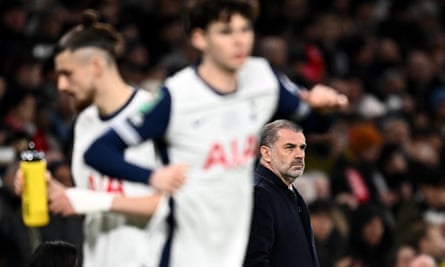Long before he began experimenting with the mind-expanding potential of psychedelic mushrooms, Timothy Leary was a psychologist. In 1957, he came up with the interpersonal behaviour circumplex, which sought to represent personality using two dimensions: power and love. While relationships on the power axis were oppositional – that is, dominance inspires submission and vice versa – on the love axis they are reflexive: hostility inspires hostility and cooperation inspires cooperation.
This was subsequently developed by Emily and Laurence Alison at the University of Liverpool. In their 2020 book Rapport, they use animals to express the four basic characteristics: a lion for control, a mouse for capitulation, a T-Rex for assertiveness and a monkey for cooperation. None of these are intrinsically good or bad: the lion could be inspiring and supportive, but he could also be patronising or dictatorial. And nor are many people represented by a single animal.
The Alisons drew up two wheels to represent the “good” and “bad” variants, each with eight sections representing personalities as being primarily one with a secondary element of another. Good Monkey with secondary Lion, for instance, is “social, warm, friendly”.
When Ange Postecoglou arrived at Tottenham, he seemed refreshingly normal. He acted confidently and was assertive. He was frank and forthright, all characteristics of Good T-Rex. But the Premier League is a tough zoo. It can break even the most apparently robust of managers. When a BBC reporter began his interview with Postecoglou after the 3-2 defeat to Everton with “A familiar story?”, he responded by snarling: “Great way to start an interview, mate.”
Tottenham have lost five of their past six league games and Postecoglou has previously seemed irritated at having to point out Spurs’ injury problems over and over again. If anything, to suggest the defeat at Everton was a “familiar story” was underplaying it: this was far worse.
The Dr Tottenham phenomenon is well known – Spurs have long been a tonic for sides down on their luck – but even by their standards, this was extraordinary: by half-time, Everton had improved their goals tally for the season by 20%, Dominic Calvert-Lewin scored his first goal in four months and Goodison was rocking like Howard Kendall was back with Paul Bracewell running the midfield.
Few will worry too much about a manager snapping at a journalist but what is more significant is what it reveals about Postecoglou’s mindset – particularly if he is reacting in a similar way to players. Being sarcastic, punitive, attacking and unfriendly, the Alisons tell us, is characteristic of Bad T-Rex with secondary Mouse. In fact, Postecoglou ticks almost all the Bad T-Rex boxes. He’s become irritable, distrustful and resentful which is Bad Mouse with some T-Rex. And he’s always been dogmatic and demanding, represented by Bad Lion with some T-Rex.
What then has changed? Why has the Good T-Rex of 18 months ago gone bad today? “It’s the way of the world,” as Blackadder explains to Baldrick in the BBC series. “The abused always kick downwards. I am annoyed so I kick the cat. The cat pounces on the mouse … and finally the mouse bites you on the behind.” Postecoglou is under pressure, his skin perhaps not as thick as it initially seemed, and this current irascible incarnation is what happens when flaws and foibles are exposed by the Premier League machine.
It’s only fair, of course, to outline once again how the club have let Postecoglou down. The squad is short – inexcusably so given wages to turnover ratio is the lowest in the league at 47%. Fraser Forster is not compatible with Postecoglou’s preferred style; that he was the back up for Guglielmo Vicario is almost negligent and the result is a 21-year-old being signed and thrown immediately into first-team action. To lose all three frontline centre-backs at once was unfortunate but to have only three has left Spurs open to that sort of bad luck. How is the inexperienced right-back Djed Spence the first-choice back-up at left-back?

Add in that Tottenham’s policy is to sign for the future and they ended up at Everton with six teenagers on the bench and another two on the pitch. In that context, a certain inconsistency is only to be expected. The problem is that Spurs now seem to have slipped beyond that; a little inconsistency, in fact, would be welcome in the face of relentless league defeats. They shouldn’t be in a relegation battle but if they lose on Sunday to Leicester, who have lost seven in a row, maybe it’s not impossible they do slide into the mire, particularly given Postecoglou’s alarming slip into Bad T-Rex territory.
This is the greatness of the Premier League, but it is also its horror. It’s like a tale from the One Thousand and One Nights: complete the quest and great glory and the princess’s hand in marriage awaits, but for those who fail the consequences are severe. The Premier League is the richest, toughest league in the world. Every game is a test. Every aspect of a manager is constantly challenged. Stand still and you go backwards.
Postecoglou isn’t alone in giving the impression of being unnerved by the remorseless nature of the Premier League. Ruben Amorim is already making highly provocative comments about just how bad his Manchester United team appears to be.
Whether dogmatism is appropriate in any aspect of management in a league that demands constant evolution can be debated – particularly, perhaps, when the dogma in question feels like a breezy version of the hegemonic style of a decade ago – and there can be little doubt about the limitations of Tottenham’s squad. But the issue Postecoglou faces now seems more fundamental and could conceivably lead to his exit before the end of the season. Beaten down by the Premier League, he is lashing out, hostility generating hostility to create a doom spiral.
Once locked in that loop, it’s very difficult to get out. It’s easy to say a little cooperation, a little flexibility, might break the cycle, far harder to make it happen, particularly for somebody of T-Rex personality type with lion tendencies. More achievable, perhaps, is to find a way back from Bad T-Rex to Good, to replace sarcasm and argumentativeness with confidence and assertiveness. You don’t have to have eaten Leary’s mushrooms to realise grouchy dinosaurs rarely prosper.
Source: theguardian.com


